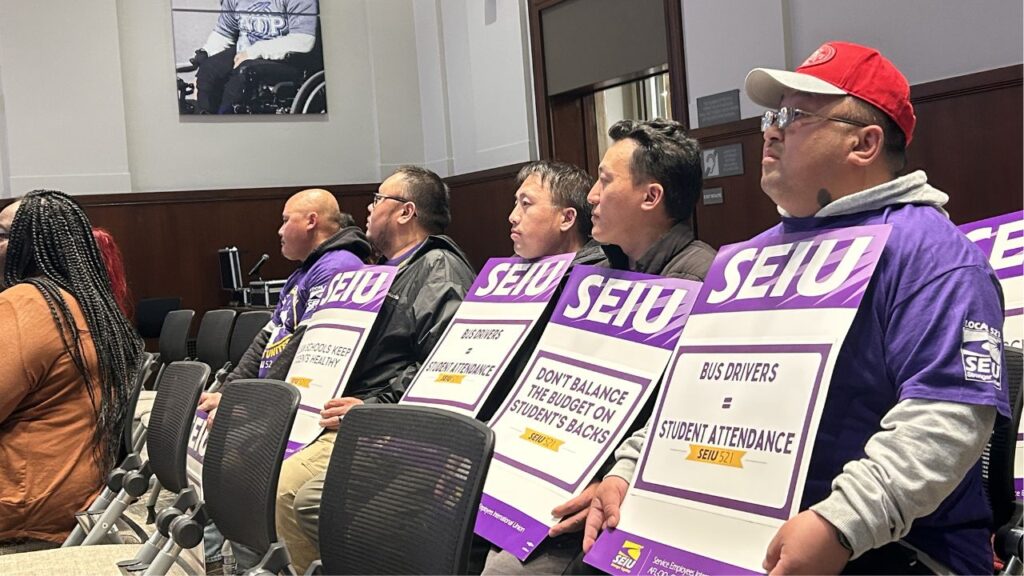Share
|
Getting your Trinity Audio player ready...
|
The need for housing in a posh Bay Area city has trumped construction rules there as officials drastically reduced a monetary requirement for a developer to build.
San Francisco-based SKS Partners presented a proposal in Sunnyvale to demolish an old building and construct two seven-story mixed-use buildings deep in the heart of the tech hub.
The Sunnyvale City Council recently approved the project, saying it added housing, increased access to mass transit, and helped preserve mature redwood trees nearby.
But, before it got to the council, the city required a $6 million contribution into a community benefit fund, which builders called “infeasible.”
The problem for city officials was that while the project added 280 housing units — including 46 affordable units — the amount of planned office space surpassed local limits, according to emails obtained by GV Wire. Given the city’s need for housing, the city limited the amount of non-residential space a project could provide.
Developers turned to California’s State Density Bonus Law to justify the increased office space, and after doing so, the city reduced its requirement by nearly $4 million.
“We are surprised that after months of negotiations for a Development Agreement, Sunnyvale felt compelled to present SKS with an ultimatum without the courtesy of a discussion,” said Dan Kingsley, co-founder of SKS Partners in an email to Sunnyvale planners.

Sonora Court Project Bringing Necessary Housing to Sunnyvale
SKS Partners first presented the Sonora Court Project to Sunnyvale planners in February 2021. Builders wanted to locate the project within an area in which city planners had limited non-residential uses through the use of a specific plan.
Much like the numerous specific plans littered throughout Fresno, Sunnyvale’s Lawrence Station Area Plan defines how planners want growth to look. One of the provisions was to limit office space in the area.
But to make the affordable and market-rate housing units pencil out financially, developers dedicated a significant portion of office space, exceeding the limit outlined in the Area Plan.
The proposal exceeded the minimum affordable housing units by 60%, according to Alexandra Lee, project manager with SKS.
A letter from attorneys to city staff stated that multi-family construction costs in the Bay Area increased 119% between 2008 and 2018, compared to 25% statewide. In 2019, the Bay Area was the third most expensive place in the world to build, behind only Hong Kong and Tokyo.
“Our work starts at figuring out how to finance and build the housing your plan allows,” said Lee in a March 2022 email to Sunnyvale Senior Planner George Schroeder. “Given current market conditions, multi-family housing is proving to be extremely challenging. We are exploring all options and are trying to think creatively about how we can lower costs and make sure housing is ultimately delivered in Sunnyvale.”

SKS Attorneys Use Unique Interpretation of State Law
The project’s office space exceeded what the city allowed by 23%. The city disputed the additional need for office space and after a year of back-and-forth discussing particulars around the project, the city returned its development agreement for the company to build.
The first offer from Sunnyvale was its best, according to Connie Verceles, deputy city manager, in an email to Lee. In addition to $22.7 million in impact fees, the city also said it required more than $6 million for community benefits. A $878,405 credit reduced that requirement to $5.2 million.
Community Benefit Funds are negotiation tools for when developers want to exceed what is allowed, Verceles said in an email to GV Wire. Funds go toward making improvements elsewhere in the city. Officials may also require that parks or roadway improvements be built.
But after not getting any leeway, developers turned to the state, and to attorneys.
The State Density Bonus Law allows housing projects to supersede local limitations on things such as parking minimums or density maximums. The idea was to encourage housing.
To help pay for housing, developers added office space. Because of the need for office space to offset costs associated with housing, attorneys claimed they could use the density bonus law to bypass local rules limiting office space.
Developers contacted the California Department of Housing Community Development to back up their position.

The revised development agreement from Sunnyvale stopped the need for HCD to intervene in the situation.
“The requestor informed HCD that HCD’s assistance was no longer needed, and HCD closed the case before having a chance to fully investigate the issue and make a determination,” said Alicia Murillo, communications specialist with HCD.
Verceles said that negotiations are a normal part of determining an appropriate amount for a community benefit fund.
“This is an expected back-and-forth process between the city and developer,” Verceles said.
Councilmembers, including Mayor Larry Klein, praised the project after it was finally approved saying it finds a way to combine high-density office and high-density residential.

















